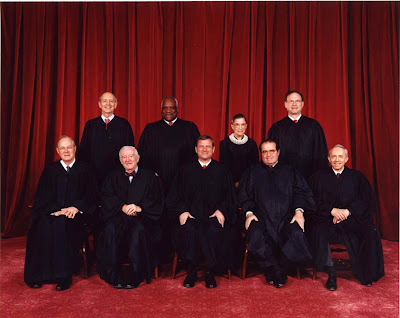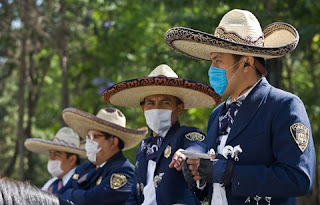
Esta institución fue precisamente diseñada para promover la solución de disputas entre gobiernos y nacionales de otros Estados, para que la comunidad internacional cuente con una herramienta capaz de promover y brindar seguridad jurídica a las distintas inversiones internacionales. El CIADI se caracteriza por facilitar la sumisión de las diferencias relativas a inversiones extranjeras que surjan en un Estado Contratante, a un procedimiento de conciliación o arbitraje.

La denuncia de Ecuador viene a completar la amenaza de Bolivia, Nicaragua y Venezuela de retirarse del CIADI en el mes de mayo de 2007. Sin embargo, únicamente Bolivia denunció el Tratado y por lo tanto, dejó de ser parte del organismo el día 3 de Noviembre de 2007. Recordemos que el artículo 71 de la Convenio CIADI claramente establece que la denuncia del tratado tendrá efecto seis meses después de formalizada, por lo tanto, en el caso de Ecuador, el Convenio dejará de surtir efectos el día 7 de enero de 2010. Todas las controversias que surjan desde la denuncia del tratado hasta que se cumplan los seis meses, según la opinión mayoritaria de los doctrinarios de derecho internacional público, podrán ser conocidas por los procedimientos de conciliación y arbitraje del CIADI.
Esta política de retirarse del CIADI, claramente constituye una de las acciones que más ahuyenta a la inversión extranjera de cualquier país. Es propia de la izquierda latinoamericana actual, cuya cabeza es el Presidente de Venezuela, Hugo Chávez, aunque hasta ahora, extrañamente, Venezuela sigue siendo parte del organismo del Banco Mundial. Para Chávez y compañía, el organismo siempre favorece a las transnacionales, las decisiones arbitrales son definitivas e inapelables y las metodologías son arbitrarias y poco claras. Pero Chávez ha recibido presiones de gobiernos como el español, quienes consideran al CIADI como una institución imparcial e idónea para que sus inversionistas resuelvan los conflictos con el gobierno venezolano.

Por demás, la propia Sala Constitucional del Tribunal Supremo de Justicia de Venezuela, ha reconocido la importancia del arbitraje como medio para resolver controversias, reconociendo el valor de cosa juzgada que tienen las decisiones arbitrales. Además, la Sala ha establecido que es el recurso de nulidad el único medio existente para atacar los laudos que puedan estar afectados de nulidad por algún defecto como la ausencia del debido proceso; el poder que tienen los árbitros para decidir sobre su propia competencia y dictar medidas preventivas o cautelares, aunque sea siempre mediante la intervención de las jurisdicción nacional.
Sin embargo, esa misma Sala, y en cuanto al arbitraje de inversiones extranjeras en el CIADI, estableció que aún cuando Venezuela es parte del Convenio CIADI, las disputas relativas a inversiones sólo podrán ser remitidas a dicho organismo, en la medida que el Estado Venezolano haya ratificado su decisión inequívoca de someterse al arbitraje, bien sea a través de un tratado internacional, un contrato o una disposición expresa de una Ley de la República. Para la Sala el artículo 22 de la Ley de Promoción y Protección de Inversiones contiene una manifestación que no constituye una manifestación expresa a través de la cual el Estado venezolano se someta al arbitraje ante el CIADI.
 La salida de Venezuela del Convenio CIADI dependerá del humor del Presidente Chávez, y también de la presión que ejerzan países como España y Suiza, para quiénes es fundamental que sus nacionales tengan un foro imparcial para dirimir las controversias con los Estados en los cuales invierten. Por ejemplo, recordemos que recientemente el grupo cementero suizo Holcim no aceptó la compensación ofrecida por el Gobierno de Venezuela por la nacionalización de su filial y declaró que proseguirá con el arbitraje internacional en el CIADI, solicitado en marzo de 2009. No obstante, la relación entre el gobierno bolivariano de Chávez y el CIADI está condenada al fracaso, puesto que el socialismo ve a estos organismos como un mal innecesario y consideran una injerencia en su soberanía que laudos arbitrales los condenen a pagar cuantiosas sumas de dinero a favor de particulares, pues al final del día consideran que el bien común está por encima del bien particular en cualquier circunstancia y sin necesidad de una indemnización puntual y justa.
La salida de Venezuela del Convenio CIADI dependerá del humor del Presidente Chávez, y también de la presión que ejerzan países como España y Suiza, para quiénes es fundamental que sus nacionales tengan un foro imparcial para dirimir las controversias con los Estados en los cuales invierten. Por ejemplo, recordemos que recientemente el grupo cementero suizo Holcim no aceptó la compensación ofrecida por el Gobierno de Venezuela por la nacionalización de su filial y declaró que proseguirá con el arbitraje internacional en el CIADI, solicitado en marzo de 2009. No obstante, la relación entre el gobierno bolivariano de Chávez y el CIADI está condenada al fracaso, puesto que el socialismo ve a estos organismos como un mal innecesario y consideran una injerencia en su soberanía que laudos arbitrales los condenen a pagar cuantiosas sumas de dinero a favor de particulares, pues al final del día consideran que el bien común está por encima del bien particular en cualquier circunstancia y sin necesidad de una indemnización puntual y justa.Parte de la culpa es precisamente de la mala costumbre de estos países, ya que gracias a la falta de independencia judicial, rara vez los tribunales nacionales sentencian a favor de un particular en detrimento del Estado.Pero la salida del CIADI de países como Ecuador y posiblemente Venezuela no tiene tampoco un gran impacto, puesto que todavía puede permanecer abierta la alternativa de someter al arbitraje internacional en los contratos bilaterales o multilaterales de inversión que las empresas extranjeras realicen con los gobiernos latinoamericanos a la hora de realizar sus inversiones. Al final del día, Chávez y sus aliados saben que sin la alternativa del arbitraje, la inversión extranjera es prácticamente nula y vista la falta de inversión nacional, los gobiernos latinoamericanos tampoco no pueden darse el lujo de darle la espalda a la inversión extranjera.
 En fin, el arbitraje como medio de resolución alternativa de conflictos sigue vigente en los países latinoamericanos y el socialismo, si quiere que empresas extranjeras realicen proyectos en sus países, está condenado a someterse al arbitraje para resolver cualquier conflicto. El problema empezará cuando los gobiernos no respeten los laudos arbitrales, pues allí cada día la inversión extranjera será cada vez menor hasta desaparecer. Esperamos que eso no suceda.
En fin, el arbitraje como medio de resolución alternativa de conflictos sigue vigente en los países latinoamericanos y el socialismo, si quiere que empresas extranjeras realicen proyectos en sus países, está condenado a someterse al arbitraje para resolver cualquier conflicto. El problema empezará cuando los gobiernos no respeten los laudos arbitrales, pues allí cada día la inversión extranjera será cada vez menor hasta desaparecer. Esperamos que eso no suceda.



























